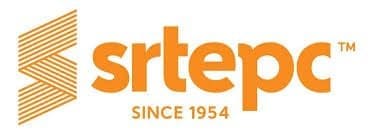Given the depressed domestic as well as global economic conditions, it was imperative to arrange for the review of the Drawback rates in order to avail of all possible benefits that can accrue for our member manufacturer exporters. In this connection the team at the Council has been coordinating with our members from various textile clusters for inputs related to the manufacturing process of products across the purview of the Council. We have worked out recommendations of drawback rates basis the calculations made after taking due consideration to represent the entire universe of Man-made Fibre Textile Manufacturers and Exporters.
As they say the ‘proof of the pudding’ is in eating. SRTEPC invited The Drawback Committee constituted by the Govt. of India to visit the manufacturing facilities of key units in Kharach, Surat and Silvassa. The Committee is headed by Shri G.K. Pillai, Chairman, with Shri Y G Parande and Shri Gautam Ray as Members.
SRTEPC coordinated the visit of the Drawback Committee along with Shri Anand Jha, Under Secretary, Drawback on 13th November, 2019 to observe and understand the manufacturing process of MMF Textile items produced in the Birla Cellulose plant at Kharach in order to recommend a revision in drawback rates of various types of items being produced and exported by Grasim Industries Ltd. The Chairman of the Council, Shri Ronak Rughani, Vice Chairman, Shri Dhiraj Raichand Shah and Shri Sri Narain Aggarwal, Immediate Past Chairman along with the Executive Director, Shri S. Balaraju and Council officials gave a warm welcome to the Drawback Committee.
The visit gave the members of the Drawback Committe an insight of Viscose Staple Fibre, made from plants and its conversion from Fibre to the Garmenting stage with or without other important elements involved in the manufacturing process. Shri Ajay Sardana, Joint President (Marketing & Business Development) of Grasim Industries Ltd. along with other prominent Business Heads from the Company welcomed the Duty Drawback Committee and explained to them about various processes involved in manufacturing of Viscose Staple Fibre.
The Drawback Committee was made aware of the increase in duties and taxes levied on various types of raw materials, thereby making the end products costly, resulting in these products becoming uncompetitive in the International markets. It was, therefore deemed necessary by the Drawback Committee to re-examine the duty structure and tax forming component of the final cost of the products so that appropriate drawback can be worked out for refund purpose thereby making Indian products much more competitive in the global markets.
The Chairman of the Council, Shri Rughani made a presentation before the Committee by presenting the export and import data of the various MMFT products as well as key issues faced by the Industry. The Chairman of the Council emphasized the need for enhancement in the Drawback Rates for all synthetic textile items. It was pointed by the Chairman that Post GST, exports of MMF textiles have been adversely impacted. The Chairman also informed that exports of Indian MMF textiles have witnessed decline in some segments. In his presentation the Chairman put up the industry requirements in order to grow the exports and stabilize the stressed Indian Man-made Fibre Textile Sector
The Duty Drawback Scheme allows exporters to get a refund / recoupment on customs duty paid on imported goods used in the manufacture of goods for exports. As is customary, the drawback rates are worked out and notified every year after taking into account the budgetary changes in the duty structure and the consumption of input materials and the duties suffered on these input materials.
Later, during the day the Council arranged for the Drawback Committee to visit Fairdeal Filaments Textile Park in Surat to get a feel of the Non Woven Industries. These products employ artisans and craft persons belonging primarily to economically and socially weaker sections of the society. Hence these product categories are considered important not only from the export point of view but also from the point of view of employment generation to a very important section of the society. In terms of potential, this product caters to the fast growing and much in demand ‘Technical Textiles’ category. Non Wovens have a very important role to play in the coming years since it is majorly used in the automobile industry and as a filter fabric in heavy industries. Given the scope of this product category in the future it was imperative for the Drawback Committee to understand the processes of this very technical product.
The SRTEPC team then took the Drawback Committee to Creative Fabrics and Shraddha Textiles, companies engaged in the manufacture of Woven Fabrics using water-jet looms. Both these companies represented the power loom sector
On 14th November 2019, the Council arranged for the Committee to visit the manufacturing plant of AYM Syntex Ltd, thereby covering the Nylon Filament Yarn category The Council thus provided a representation of manufacturing process of Viscose Staple, Non-Woven, Woven and Nylon textile sectors of our varied and diverse industry.
The SRTEPC Office bearers led by the Chairman thanked the members of the Drawback Committee for their interest to understand the workings of this very important sector in the Indian Textile industry and for taking time out to visit the factories to gain a first hand experience. The Chairman was hopeful that the Drawback Committee would make recommendations for the benefit and future of the Indian MMFT Industry.

